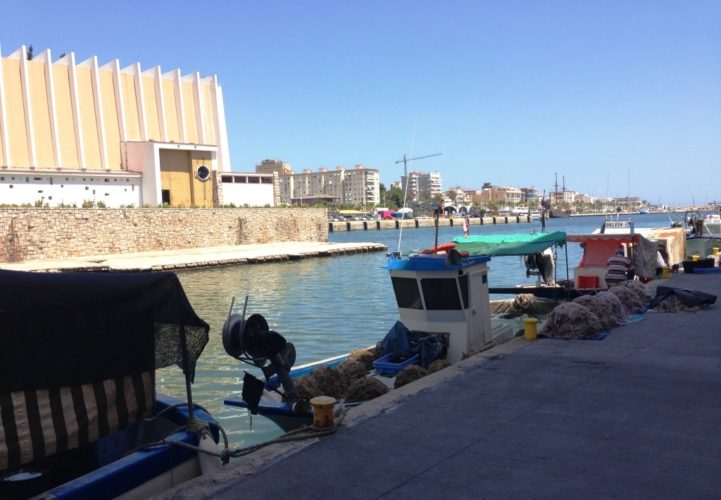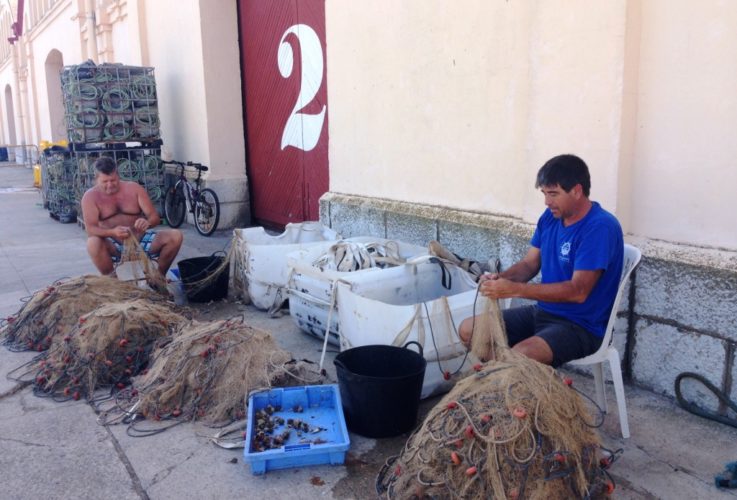The traditional fisheries sector is facing a difficult situation in the Mediterranean from the socio-environmental point of view, with significant economic and cultural costs. This fact has led to the search for alternatives that reconcile the survival of artisanal fishing within the framework of necessary environmental sustainability. Moreover, trends in the tourist market increasingly point to the demand for experiential activities and, therefore, fishing tourism is perceived as a unique tourist product with a distinct identity that offers new opportunities for Valencia’s coastal tourism destinations.
With this in mind, the project entitled “The Case of Fishing Tourism in Gandia“, written by the Universitat Politècnica de València in collaboration with the Valencian Tourism Agency, provides a regulatory and technical overview of fishing-related tourism and pesca-tourism in the Region of Valencia, as well as a comprehensive analysis Gandia’s situation to propose a legal and resource-based framework to make this niche form of tourism a reality.

The research team differentiates between Pesca-Tourism, Fishing-Related Tourism and Recreational Fishing. Fishing-Related or Maritime Tourism has a recreational nature and includes numerous fishing activities carried out at sea, and others on land. By contrast, Pesca-Tourism takes place on board commercial fishing boats and is aimed at small groups and tourists with very specific profiles. Therefore, Pesca-Tourism activities are subject to greater seasonal restrictions than Fishing-Related or Maritime Tourism. Recreational Fishing is carried out on land or on charter fishing boats for the practice of angling (fishing with a rod and line).
An extensive bibliographical and regulatory review of European, national and autonomic legislation was carried out for this paper, especially the 21 European countries, Catalonia, Galicia and the Balearic Islands. They also studied the case of the San Francisco Bay area (California, USA), where there has been an important development of marine tourism activities.
The Potential for Fishing Tourism in the Region
In the Region of Valencia, there are localities with incipient tourist offerings of this type that may be further developed in the light of existing resources and the opportunity offered by the European Maritime and Fisheries Funds (FEMP).
THE CASE OF GANDIA
The results of the research indicate that Gandia has important tangible and intangible elements that make it suitable for the practice of fishing tourism activities. The intangible elements include the history of the Grau and its port area, traditional fishing knowledge, seafaring culture, the Fishermen’s Guild, which is very active and possesses an enormous legacy, an outstanding maritime cuisine, culinary and traditional knowledge, and maritime festivities. The tangible elements include the fishing sheds, the Church of San Nicolás, or the fish market (with traditional and electronic auction). All this, together with the good weather and beautiful landscape, are the basic elements to offer an attractive fishing tourism product.
FACTORS REQUIRING ADAPTATION
The recommendations made by the research team distinguish between Fishing-Related and Pesca- Tourism, since the technical and regulatory requirements and the tourist profiles are different. In addition, it is important to bear in mind the need to adapt fishing-related facilities (fish market, sheds, etc.) for visits by tourists, as well as the need for adequate signage to help guide tourist during their activities in the port environment.

A fundamental factor for the success of this proposal, they explain, lies in leveraging the Fishermen’s Guild as the main asset to expose to the visitor the praiseworthy work done by the fishermen. Based on these premises and on the involvement of the hospitality industry, the UPV believes that it will be possible to produce marketable tourist products with great experiential value that enrich Gandia’s tourist attractions.
PARTICIPATORY PROCESS
This process involved all the local stakeholders in Gandia, both fishermen and official bodies, as well as representatives from the hospitality industry (hotels, restaurants, etc.), tourism services and intermediary companies. The objective has been to find out their perception and their predisposition in relation to the implementation of this new tourist activity. Additionally, this project has been completed with the compilation of a maritime cuisine cookbook representing the embodiment of knowledge of the sea and cultural traditions considered to be a true maritime heritage. Local chefs, ship’s cooks, fishermen’s wives and professor from the ‘Alqueria del Duc’ Tourism Center of Gandia took part in this cookbook.
More information about the project: Lola Teruel, Campus Gandia reasercher.
Communication and Marketing Officer, Gandia Campus

